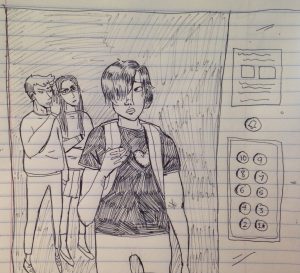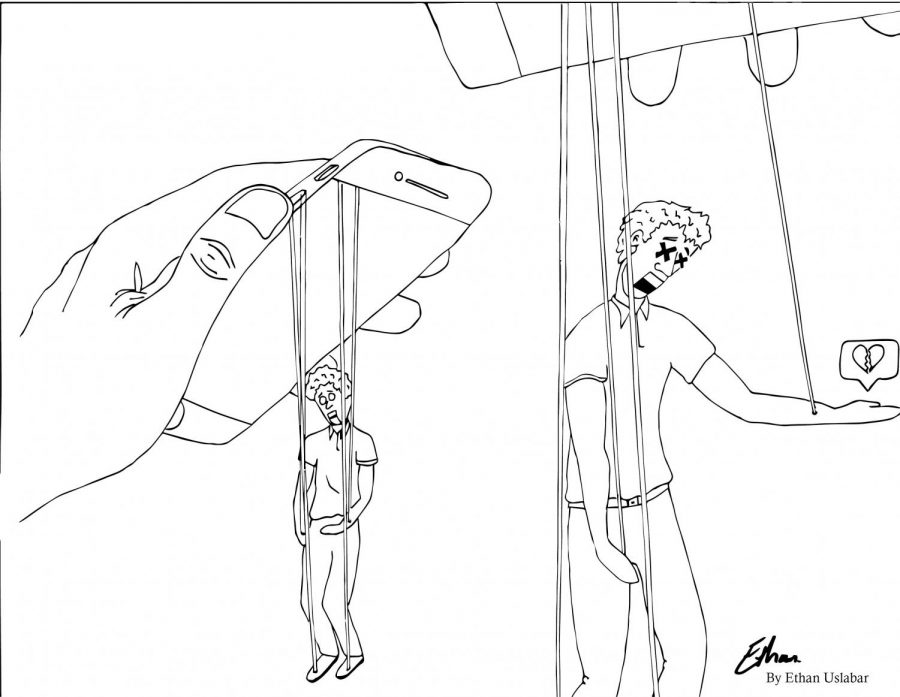[media-credit id=157 align=”alignleft” width=”300″] [/media-credit]
[/media-credit]

Invisible illnesses can significantly impair the activities of one’s daily living; whether that is every day, in bursts throughout their lifetime or only for a period of time in their life.
Invisible illnesses are defined as diseases or a period of sickness affecting the body or mind, which do not show on the outer surface. These are disabling medical conditions that show zero outward signs and affect 10 percent of the United States population.
Conditions of this nature include ADHD, diabetes, Crohn’s Disease and depression, amongst others.
Quite often we hear, and possibly say ourselves, how these illnesses are fake and are “only in our minds.”
A degree of intolerance is directed towards mental illnesses as people say how anti-depressants, bi-polar medication and other prescriptions used to help treat mental illnesses are phony and bogus; that a good walk through nature cures all.
“The general public thinks of anxiety as a contagious, infectious disease,” freshman Mikayla Becker said. “They cripple at the thought of Wellbutrin and Sertraline and Xanax.”
Other invisible illnesses may not acquire as much of a stigma, but are still underestimated. Your peer may appear unaffected on the outside, but inside they cannot concentrate due to ADD, which restricts their learning ability. There are females living with endometriosis that look completely ordinary on the outside, but inside they experience constant, crippling abdominal cramping.
Senior Rachel Boudreau said she thinks there is a significant stigma around Celiac Disease, which is the invisible illness that she lives with, simply because most people don’t know what the disease is.
“They think that I’m just doing a diet fad or something when really it is so detrimental to my health,” Boudreau said. “They don’t realize that it is an autoimmune disease or that it makes me feel like I have a concrete balloon in my stomach for days after I accidentally eat just a tiny bit of gluten.”
Because of the lack of physical differences in a person, their illness is often disregarded due to a lack of “proof.”
In many cases, those living with these illnesses have gone through test after test, sat through numerous doctors’ appointments, made decisions about drug treatments and had many failures along the way.
Some days may be good and other days may be harder, but above all the people with invisible illnesses are the ones experiencing everything and they are the best advocates for their body.
“I’ve learned through my experience that you have to be firm and advocate for your own health; you know when something isn’t right and you have to make your doctor listen to you in order to get anything resolved,” Boudreau said.
Questioning the legitimacy of an illness is extremely disrespectful. When a person states they cannot participate in a certain activity due to the fact that they are ill or decline an offer of food or drink for precautionary measures, it is not out of disrespect but for the sake of their best interest.
“People can’t see the effects it has on you,” freshman Ariel Schultz said. “Many see it as an excuse or that you’re lying [which makes] things difficult to communicate with other people about [your] diagnosis.”
Those with invisible illnesses know their body best so do not try and persuade them against their best judgment, and certainly do not say “it can’t be that bad.”
When they explain their troubles, they are not exaggerating; just because you cannot see the problem does not mean it does not exist.
When asked about how she explains her invisible illness to others Schultz said “I still haven’t found a way that works without people doubting or giving me the pity look. Which can be just as annoying.”
Senior Jessica Werhand said constantly explaining herself to others can be grueling.
“It’s so exhausting having to tell people your life story and sometimes I just don’t feel like reading off my medical charts to coworkers, classmates or friends,” Werhand said. “I feel like I have to justify my illnesses to people because they can’t look at me and tell.”
Do not judge the girl who must take the elevator to the second floor because she could have a heart condition that does not allow her to easily climb stairs.
Do not judge your roommate if they skip their classes two days in a row because their depression keeps them from getting up.
Do not judge those who prick their finger in the bathroom because they could be diabetic and checking their blood sugar.
The best way to end the stigma is to end the judgments. The general population makes these small judgments and complaints, but the truth of the matter is you never know what someone goes through on a daily basis.
Maybe these people look fine on the outside, but inside they are fighting an illness that disables them at some point or another.
Whether it disables them every day, once a week or once a month, these people think about their illness daily.
Those with an invisible illness go through weak days, but overall they are strong. If they want to do something they will do it and you cannot stop them.
Similarly, if they are physically and/or emotionally unable to do something they will protect themselves first and foremost, and they deserve respect for doing so.
If you wish to help someone with an invisible illness, do not speak for them, but speak to them.
Ask them questions, ask about their story and listen to them to understand, not to reply.
End the stigma because we are human beings with invisible illnesses, not bodies with fake conditions.














